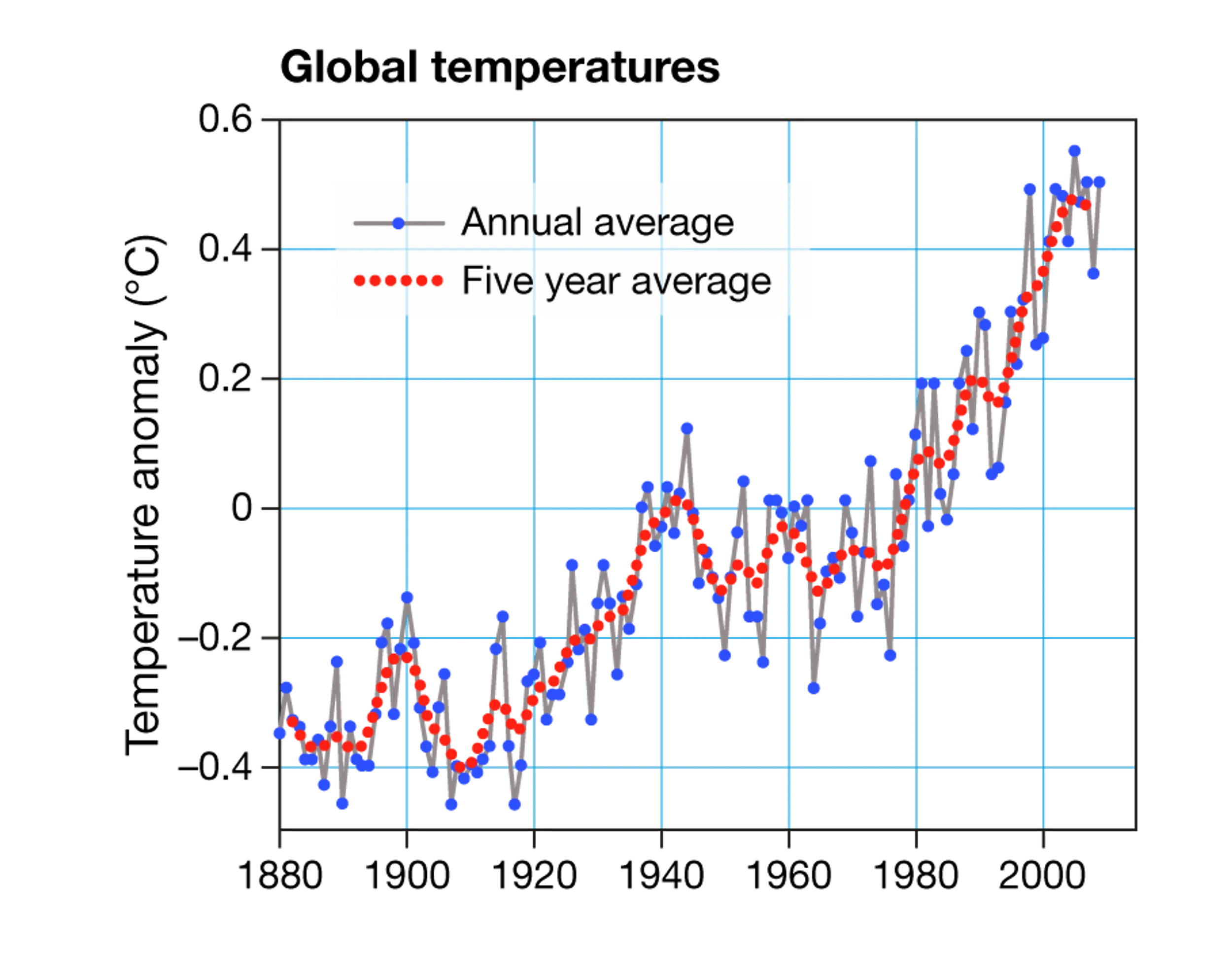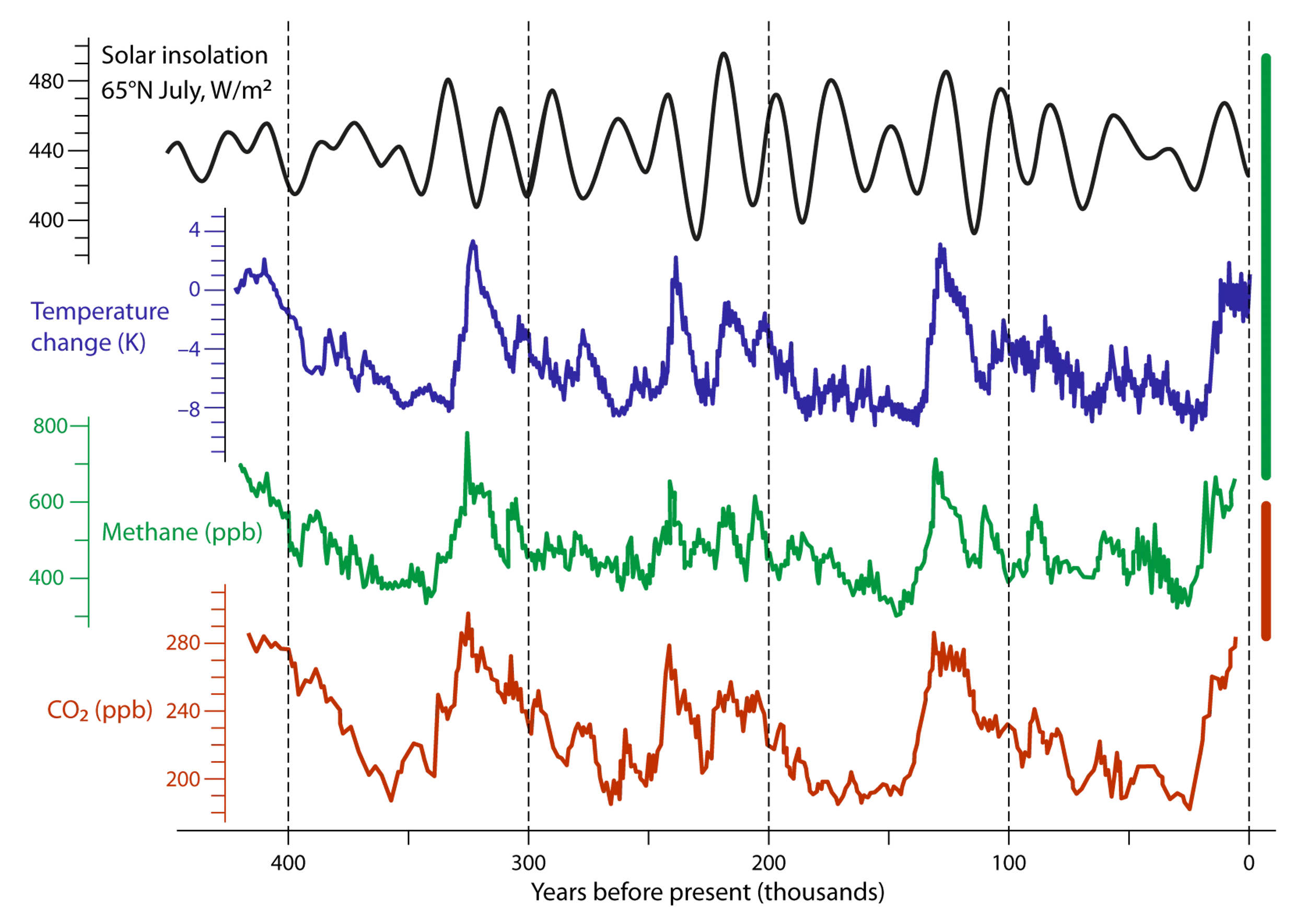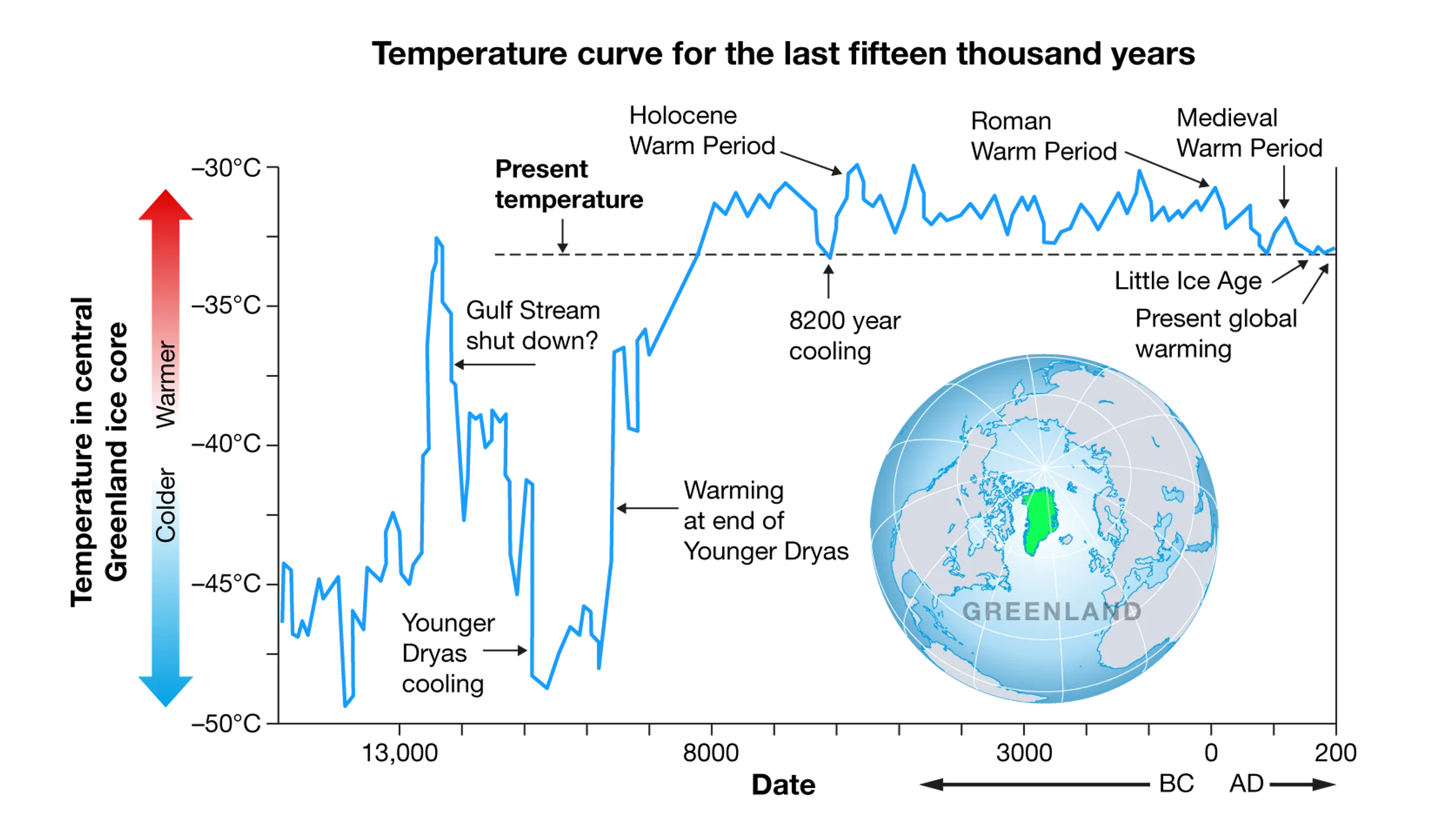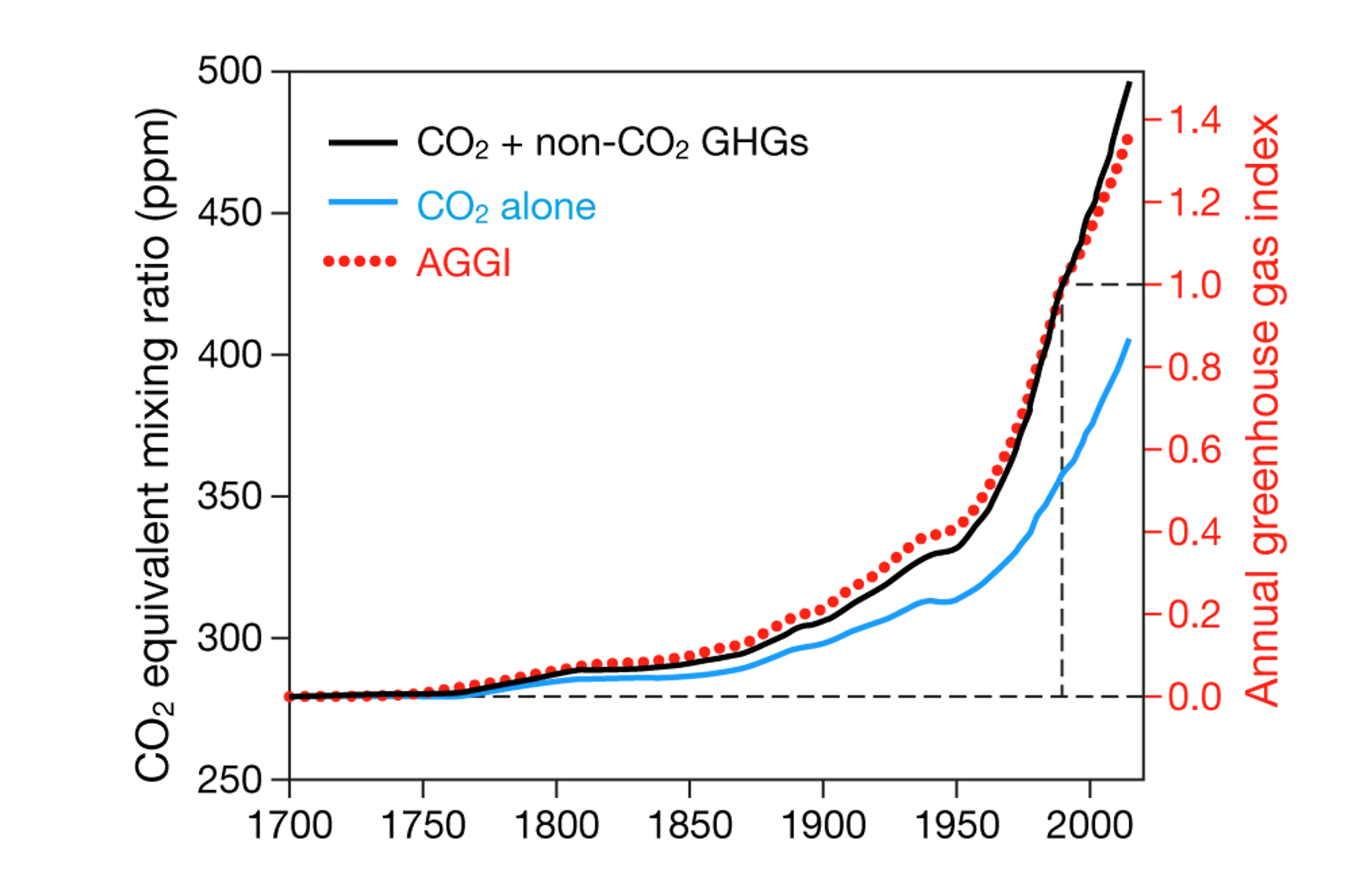Climate Change: Nothing New

It seems that most are now alive to the issue of global warming. The responsibility for excessive carbon dioxide emissions, which is believed to be the primary cause of this phenomenon, rests squarely on our shoulders. To question this perspective is often considered environmental heresy. But does this present the complete picture?

There is little doubt that global temperatures have risen over the past 150 years.
The remarkable aspect lies in the pace of this change, as the rate of temperature increase continues to accelerate. Carbon dioxide emissions have experienced exponential growth due to the escalating consumption of fossil fuels by humankind.

Nonetheless, climate change is not a recent occurrence.
Historical data reveals a pattern of alternating periods of warming and cooling. Consider the following statistical data spanning 500,000 years, which highlights warmer and cooler periods correlating with increased levels of methane and CO2 in the atmosphere, unrelated to human influence. Research demonstrates that the transition from warmer to cooler periods has historically been relatively rapid.
Several other factors contribute to climate change. Examination of the Milankovitch cycles indicates that the amount of solar radiation reaching the Earth varies, significantly impacting global temperatures, particularly in the northern hemisphere.
Our present epoch, the Holocene Period, is considered by some as an interglacial period characterised by relatively stable temperatures. Nevertheless, even within the last 8,000 years, global temperatures have surpassed those of today. This suggests that climate change cannot be solely attributed to human activity and indicates our limited understanding of the complexities of the global climate system.


Does this mean we should adopt the viewpoint that carbon emissions need not be reduced?
Increased greenhouse gas emissions are likely responsible for the recent rise in temperatures. Moreover, elevated CO2 emissions will amplify any natural changes that are occurring. They play a significant role in accelerating the rate of temperature change. Regardless, it is imperative that we refrain from releasing pollutants into the atmosphere on the scale we currently do, not only for our own well-being but also for the broader health of the global environment.

Drastically reducing greenhouse gas emissions has the potential to decelerate global warming. However, whether it can halt the phenomenon entirely depends on the interplay of other factors that contribute to climate change.
In conclusion, it is evident that climate change is a complex issue with historical roots. While human activity has played a substantial role in exacerbating the problem, it does not provide a comprehensive explanation. Therefore, we must continue to explore the intricacies of the global climate system to improve our understanding and take decisive action to mitigate its impact.
Find exactly what you’re looking for.
- Popular Searches
- Biology
- Chemistry
- A Level Media Studies
- Geography
- Physics
- A Level Environmental Science
Newsletter
General
Work with us
Get in touch
- © 2026 Curriculum Press
- Terms & Conditions
- Privacy & Cookies
- Website MadeByShape









